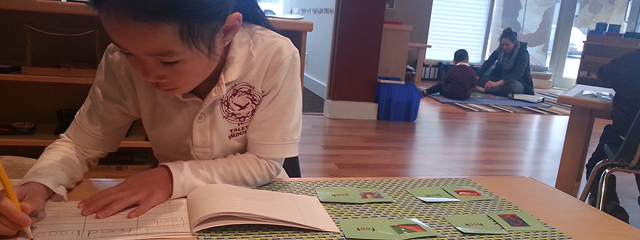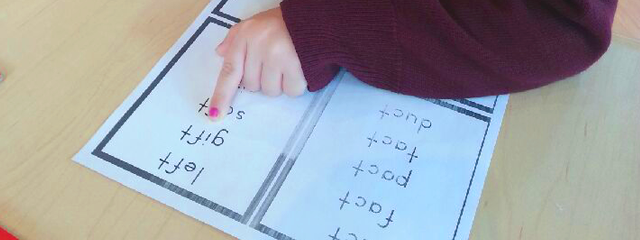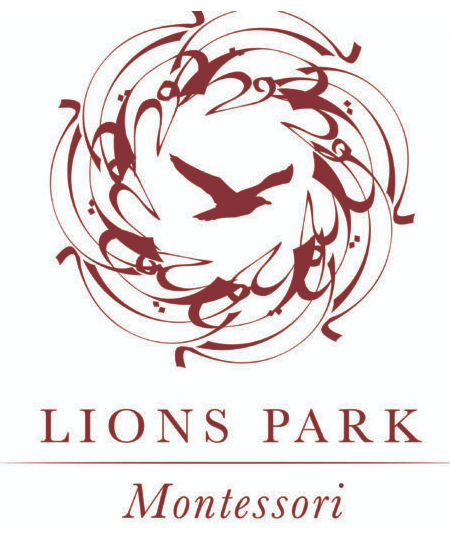About
Lions Park Montessori is a bright and spacious ‘state of the art’ school located in beautiful Port Coquitlam overlooking Lions Park. We acknowledge that Lions Park Montessori operates on the traditional, ancestral and unceded territory of the the kʷikʷəƛ̓əm (Kwikwetlem) Nation, a space in which we live, learn and play on. We want to say thank you to their elders – past, and present and we promise to look after the land, water and animals.
We are dedicated to providing high quality Montessori education based on the philosophy and teachings of Dr. Maria Montessori. Lions Park Montessori is a community of diverse students, educators and families who are dedicated to ensuring that the environment instills curiosity, confidence, and a love of learning.
Our programs include:
Toddler – Full Day (18-36 months)
Primary – Full Day CASA (30 months to school age)
This revolutionary method of education is based on the simple and fundamental principle of “following the child”. The Montessori program nurtures the natural development of the child and builds on their innate curiosity to learn. Through peer and teacher interaction and an integrated curriculum that includes activities for self and group learning, children begin a unique experience to self-discovery.
The Montessori classroom can be referred to as a carefully planned and prepared environment. By creating a learning space where children feel comfortable to explore, they develop a sense of independence and enhance their cognitive development through ‘learning by doing’. The unique combination of activities coupled with self, peer and teacher learning helps children enhance creativity, build critical thinking and problem solving skills. Our program provides the foundation for life-long education, where a deep desire for learning is the result of individual discovery and genuine inquisitiveness.
Maria Montessori
Dr. Montessori continued to practice her theories and proved its success in Italy before she spread her knowledge and established centres of training all over the world. Today, her memory lives strong as her message of teaching by “following the child’ continues to be the foundation of many classrooms all over the world.
Information about the Montessori method and Dr. Maria Montessori has been collected from The International Montessori Index. We encourage parents to learn more about Dr. Montessori and the Montessori method at this site.
As educators, we recognize that a child’s learning does not stop at the classroom. At Lions Park Montessori, we strive to build a strong link and partnership between the home and school, actively encouraging and welcoming parent involvement in our programs and activities. It is our belief, that parents are the child’s first and foremost teachers and play a significant role in a child’s educational journey.
A child’s environment is essential to his or her learning development. Our classroom furniture and the materials we use are comfortably scaled to a size that facilitates a self-directed approach to learning and independence within a home-like atmosphere. It is our goal to continuously offer a safe and nurturing learning environment, where children can practice their emerging skills in a small community they can trust. Lions Park Montessori is committed to meeting the developmental needs of each individual child intellectually, physically, socially and spiritually.
Programs

FULL DAY TODDLER (18 – 36 months)
7:30 a.m. – 5:30 p.m.
Includes: Two healthy snacks (fruit, vegetable and grain)
FULL DAY (30 months to school age)
7:30 am – 5:30 p.m.
Includes: Two healthy snacks (fruit, vegetables and grain)
Practical life
A child’s environment is an opportunity and source for great learning. Practical life activities fall into four main categories:
- Development of concentration
- Fine motor development
- Refinement of hand control
- Development of child’s sense of order
- Preparation for writing
Practical life activities are basic and purposeful activities of daily life. These activities include many tasks children see as part of their everyday life such as carrying objects, pouring liquids, polishing shoes, tying laces , cutting and preparing foods. Through these tasks, children gain control in coordination of his movement, build self-confidence in their working abilities and refine the activities they will encounter through adulthood.
Sensorial
Language
Mathematics
The Math area has materials that allow the child to move from concrete to abstract. This type of work gives children a solid understanding of Math principles and helps to develop them for abstract reasoning and problem-solving capabilities. Mathematics activities are divided into six categories;
- Decimal system
- Numeration
- Linear counting
- Squaring and cubing
- Concrete abstraction
- Time
Art, Music, Dance and Yoga
French
Cultural Studies
The Montessori method provides children the opportunity to explore their environment and cultivate a genuine curiosity for the world in which they live in. Cultural subjects include Geography, Foreign languages, Science, Botany, Zoology, and Art and music.
Studying Geography and Foreign Languages allows the children the opportunity to understand their own culture as well as many others. The children can relate and understand cultural diversity and ultimately come to appreciate differences between humankind. Further, they develop a deeper and more literary understanding of language.
Parent Resources

A Parent’s Perspective — Good at Doing Stuff
presented by Steven Hughes at UBC
Montessori education is uniquely suited to help children’s maturing brains in away that is “unparalleled by other education approaches,” a pediatric neuropsychologist told Montessori educators and parents in a speech at Emory University earlier this month.
“It’s brain-based learning,” said Stephen Hughes, Assistant Professor of Pediatrics and Neurology at the University of Minnesota’s Medical School and director of education and research for the TOVA Company.
Hughes, the father of an 11-year-old girl who attends Lake Country School, a Montessori school in south Minneapolis, Minn., said Montessori education parallels what we know about how the brains of 5- to 20-year-olds mature as a consequence of “experimental interactions with the environment.”
That makes Montessori students “good at doing things,” said Hughes, who has studied the neurodevelopmental benefits of classical Montessori education.
Montessori’s educational approach has a unique impact on brain development by providing “extraordinary opportunities to foster” executive functions, the fundamental cognitive operations that guide complex behavior, Hughes said. It is here that Montessori education is “unparalleled by other education approaches.” “What does Montessori education do? It presents material that is just beyond, offering something tantalizing about what there is about the world,” Hughes said. “It’s helping to draw the wave of development forward … by always having available to your child material that is just there, at the crest of their brain development.”
“That curriculum is so well-developed, it is unparalleled,” he said. “It is a thing of beauty to see how sophisticated the associations are across materials and the small but beautiful incremental steps there are in the math curriculum.”
“There is no place in the world other than a Montessori classroom where there is always developmentally appropriate material available,” Hughes said.
The type of self-guided learning offered in Montessori education builds better brains through opportunities for self correction and error, he explained. “A Montessori teacher lays the foundation for the child to make the discovery himself,” Hughes said. Montessori offers a culture of respect for the child, a method that permits children to discover for themselves the functioning of the world, and a wonderful set of materials, Hughes said. “I believe that while all these three components are critical, it is the culture of the Montessori environment that is the most important. At its core, Montessori education represents a cultural intervention with children and their families,” he said.
“It has never been more important for us to produce a generation of children who can look around figure out what needs to be done and do it,” Hughes said.
“If our children and grandchildren are to see the 22nd century, those who are running things in the 21st century must value a culture that respects … (the) values that lie at the heart of Montessori education.” When one parent asked about the transition from a private Montessori school to a “good” public school, Hughes said his advice was “keep your kid in a Montessori environment as long as you can.” He reassures us that we are in no way depriving our children of being raised in the real world by keeping them in a Montessori environment as long as we can.
The Science of Healthy Baby Sleep
The ‘Science of Healthy Baby Sleep’ tackles the complex issue of sleep, in young babies and children.
Click on the link below to learn more:
https://www.bbc.com/future/article/20220131-the-science-of-safe-and-healthy-baby-sleep
Reading Aloud to Children
Reading aloud to children has been shown to improve reading, writing and communication skills, logical thinking and concentration, and general academic aptitude, as well as inspire a lifelong love of reading. Story Online streams videos featuring celebrated actors reading children’s books alongside creatively produced illustrations.
